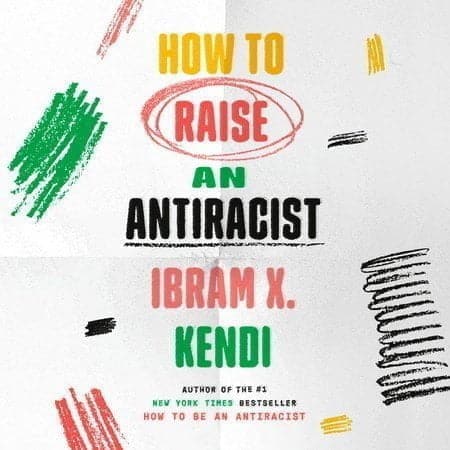On June 17, 2021, President Biden signed a declaration making June 19 a national holiday commemorating that day in 1865 when enslaved people received word of their emancipation. However, it was from 1865 forward that the African-American community in Galveston, Texas, began its annual celebration of African liberation day and African cultural heritage. These celebrations expanded to other cities over the decades and so June 19, or Juneteenth, became recognized as Independence Day, Freedom Day, and Jubilee Day for Black people in America.
However, national holidays honoring and celebrating freedom do not repair historical injustices. Nor do they dismantle current injustices.
White supremacy ideology and unpaid labor serving capitalism built our country. European settler colonialism, genocidal theft of Native peoples’ land use and livelihood, abduction of Africans and pressing them and their offspring into slavery for centuries – all this informs our national heritage. As starter yeast baked into our laws and institutions, white European ethnocentrism was built upon founding documents such as the Declaration of Independence, the Bill of Rights, and the U.S. Constitution. These documents have been used to promote and justify oppression here domestically and to justify white dominance and capitalism abroad. America justifies Her hegemony in exceptionalism mythology which states that market-based capital in “democratic” societies based on Western white civilization must be promoted and defended globally. This arrogance has kept us in foreign wars in virtually every generation since 1776. It is our current neoliberal siren song.
Because of this arrogance, racism will not disappear on its own. Economic disparity based on race will not disappear on its own. Neglect and abuse of Black people from the education and healthcare systems will not disappear on its own. Dangers for Black people with law enforcement, the criminal justice system, and the carceral state will not disappear on their own.
Professor Ibram X. Kendi has written fearlessly and extensively on how we can confront racism by consciously going against the “factory setting” of what society tells us about who is considered “white” and who is considered “not white.” Like gender, race is a social construct, not a scientific or biological one. Kendi’s works have exploded myths of meritocracy that “white” people have held on to justifying and explaining all the disparities.
This author asks us to consider that individual and collective actions, not people, are either racist (that which upholds white supremacy) or anti-racist (that which dismantles white supremacy). He argues that behaviors are racist and every person regardless of who they are can choose in each moment a behavior that is either racist or anti-racist.
In his new book “How to Raise an Anti-Racist,” Kendi describes how to teach children about race in America with each chapter describing developmental stages from birth to adulthood. He identifies where most adults neglect to help usher in milestones for developing healthy race awareness. Many white parents and educators avoid talking about race with their children and students because of the mistaken belief that “color blindness” is the only way to not be racist. The problem is that in de facto segregated communities, white kids can go many years without interacting with children from different races and backgrounds. Black parents are torn between how much to protect their children from institutional racism in schools and in the neighborhood and how and when to have the talk about keeping safe out in public from law enforcement. Without these anti-racist “inoculations,” Kendi argues, children will naturally default to embracing white supremacy in American culture.
Kendi has some great suggestions for how parents can be intentional in nurturing children to be culturally competent and free from myths of white supremacy. He talks about directly addressing race and how it plays out in America so kids grow into adults capable of identifying and confronting racist behavior.
First, he recommends that all people find out about their own ethnic heritage on a granular level and understand and embrace its cultural features and rituals: food, art, music, celebrations, etc. Then, people should do the same for people of differing backgrounds by deliberately connecting themselves and their children to these folks, seeking out interesting features about others’ cultural and ethnic histories. In the spirit of appreciation rather than competition, folks can identify for themselves and their kids the differences between their own unique cultural heritage and those of others. Finally, it is essential to find out what are the common features of all peoples’ cultures. How are we alike in the human family? When learning about ourselves and others’ cultural heritage it is for growth rather than a static mindset. Rituals, attitudes, and beliefs that no longer serve people then fade into the background and history.
When practicing this, it’s the best way to model anti-racist behavior for the children we are charged with raising.
When we become more comfortable talking about racial and ethnic differences, we become more willing to hear without defensiveness about the pain marginalized groups experience with racism.
Kendi theorizes that because our society is racist, all people who are raised here regardless of race, must break free of this social conditioning, and take deliberate steps to be anti-racist. He asks that we identify where our actions might promote either racism or anti-racism rather than defensively declaring to be “not racist” as an identity.
He recounts narratives about his own childhood and how his Black parents dealt with raising Black sons in white supremacist America. He is very open about mistakes he has made as a parent with Imani, and a partner with Sadiqa, in missing opportunities to act anti-racist. As difficult as it is to hear about these personal experiences and how difficult it is to hear about where American has also missed opportunities to be anti-racist, like by destroying Reconstruction, ushering in the Jim Crow South, redlining real estate, and creating mass incarceration, Kendi promotes hope in how people can take anti-racist action.
In the epilogue of his brand-new work, Kendi reminds us how recent events nationally have spotlighted attempts to push back against dismantling white supremacy and race-based oppression in institutions and policies. School board fights against addressing racism, misogyny, and homo- and transphobia in curricula or even talking about such topics in the classroom is one glaring example. Various state legislatures’ attempts to roll back voting protections in communities of color is another. How America has handled dealing with the COVID pandemic, pushing working class people (overwhelmingly represented by non-whites) back into unsafe workplace conditions, is yet another example. The refusal to restructure policing, which has had a murderous impact on Black people, is a third. And of course, there were the January 6 riots, in which privileged white people were threatened by the prospect of our country moving in the direction of equity, so they embraced the lie that the presidential election was “stolen.” To the group with advantages, moving in the direction of equality, or a more level playing field, feels like loss, so they reacted violently.
Just after this book was released the tragic mass shootings in Buffalo, New York, and Uvalde, Texas, showed not only how insane our gun policies are in the United States but brought into high relief just how destructive resistance to ending white supremacy has become. Traditional and online media have curated false white grievance which encouraged a lonely angry white man to murder Black customers in a Buffalo grocery store, and of course this is a repeat of other similar tragedies. The horror at Robb Elementary School in Uvalde also highlights the utter failure of law enforcement to protect those children and teachers. Police training in many locales has been fear-based against the “other…those in non-white communities.” Fear contributed to non-action by the Uvalde officers in this case as well. Traditionally, policing has been designed to protect property rather than people, wealthy communities rather than ordinary communities, and white communities rather than non-white communities. Recently, police training has been for self-protection of the officers over protection of the citizens they are tasked to serve. So at least indirectly white supremacy has had an impact on how police mishandled this deadly event.
Even in this discouraging environment, giving up on dismantling white supremacy is not an option. The journey has been a long one with some victories and reminders that there is much work left in building a truly egalitarian society. Although I am skeptical about the binary approach that all words and actions are either racist or anti-racist, I agree with the emphasis on personal choices rather than personal labels. What I appreciate about Kendi is that he balances his honesty about race and racism in our country with empowering practical steps we can take to nurture our children into awareness and appreciation of all peoples. This book will help folks who are willing to navigate discussions about race that are informative and perspective changing. It is a growth mindset approach. Hopefully, the body politic can ultimately be led by those who have been empowered this way.
Let’s do the work to get there.







